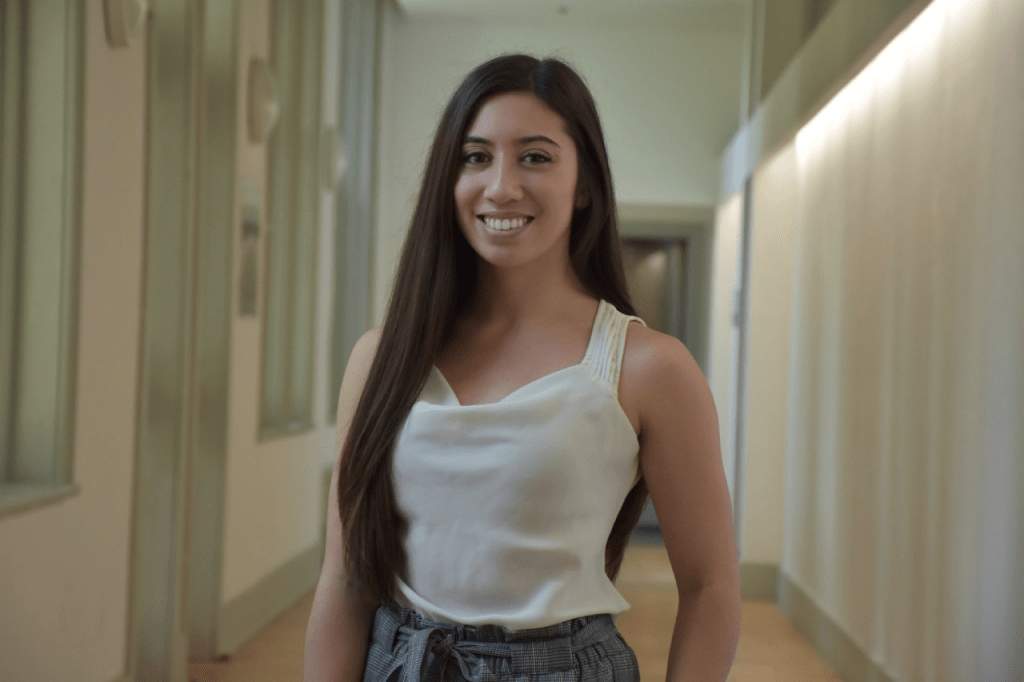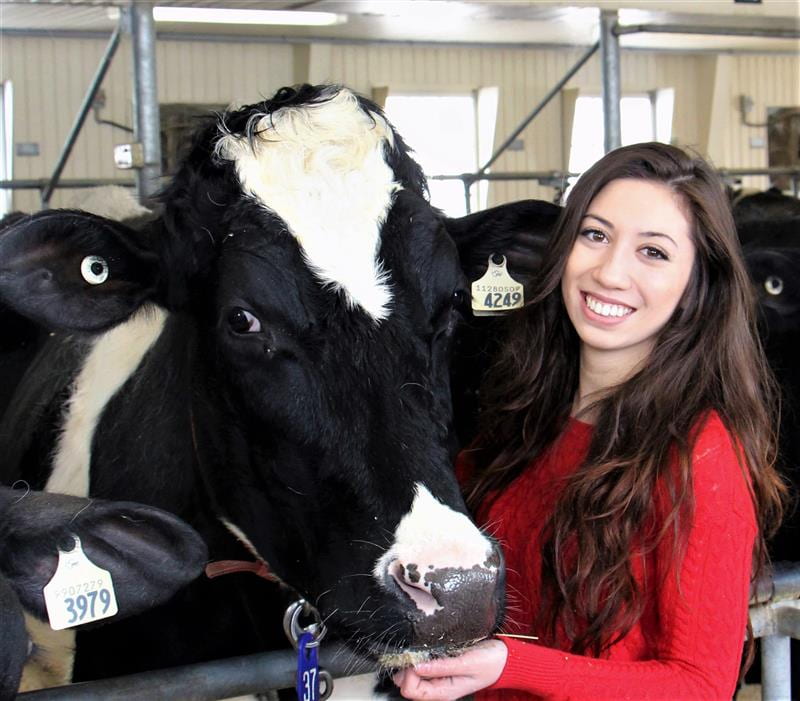Understanding One Health in education and research, and using One Health to combat antimicrobial resistance in the dairy industry
Sydney Pearce is a Ph.D. student studying Epidemiology with a collaborative specialization in One Health under the supervision of two One Health researchers; Dr. David Kelton and Dr. Jane Parmley.
As the president and founder of the One Health Student Committee (OHSC) at the University of Guelph, Sydney Pearce is a passionate One Health leader and is dedicated to engaging diverse undergraduate, graduate, and veterinary students in One Health. Through OHSC, Sydney has created a collaborative, inclusive, and enthusiastic team that has reached hundreds of students across campus through activities such as Networking Nights, seminars, journal clubs, and social events.
In Sydney’s work as a Ph.D. candidate, she has brought together many aspects of the One Health approach and concept into a single graduate thesis. The objective of Sydney’s research is to understand factors associated with the use and adoption of One Health principles and practices, broadly and within the dairy industry specifically.
To do this, she will conduct a scoping review of One Health literature, a One Health focus group study, a meta-analysis on the efficacy of a non-antibiotic alternative for preventing mastitis in dairy cows, and the development of knowledge translation tools, including a podcast series and a gaming app, that promote dairy antimicrobial stewardship practice.
Sydney’s definition of One Health is acknowledging the interconnections between animal, human and environmental health, but she also stresses the importance of recognizing that ‘environment’ consists of both the natural environment and built environments such as political, social, and economic systems. Her scoping review uses this definition to assess which self-identified One Health research articles follow this all-encompassing One Health approach, as well as what fields are the most and the least engaged in the approach. This information can help identify areas for One Health competency and awareness education.
She applies this definition to all areas of her research; emphasizing collaboration and out-of-the-box thinking. Her One Health focus group study will bring together veterinary, medical and horticulture students to identify current One Health awareness, presence in education systems, perception, and provide an opportunity to collaboratively create ideas and methods to address health in a more holistic way among the student practitioners.
Sydney’s other projects will demonstrate how One Health can be used in dairy cow health management. Her systematic review and meta-analysis explore the efficacy of teat sealants as an alternative to antimicrobial treatment for mastitis and intramammary infections. These prevalent diseases have economic and welfare implications, and a large portion of dairy antibiotic use goes towards preventing them. Alternative prevention methods can help reduce the use of antibiotics and are key components of reducing antimicrobial resistance occurrence. She is also developing a podcast series, an interactive website, a gaming app and research papers, in teat sealants and other dairy antibiotic best practices, with the goal of understanding the optimal knowledge translation methods to facilitate learning and behaviour change in veterinarians and decision-makers. Her research team includes an engineer, knowledge translation specialists, and veterinarians. Sydney emphasizes that these specialists have different backgrounds and perspectives, and each is important, and have helped her enlarge her scope of the situation.
Sydney’s other projects will demonstrate how One Health can be used in dairy cow health management. Her systematic review and meta-analysis explore the efficacy of teat sealants as an alternative to antimicrobial treatment for mastitis and intramammary infections. These prevalent diseases have economic and welfare implications, and a large portion of dairy antibiotic use goes towards preventing them. Alternative prevention methods can help reduce the use of antibiotics and are key components of reducing antimicrobial resistance occurrence. She is also developing a podcast series, an interactive website, a gaming app and research papers, in teat sealants and other dairy antibiotic best practices, with the goal of understanding the optimal knowledge translation methods to facilitate learning and behaviour change in veterinarians and decision-makers. Her research team includes an engineer, knowledge translation specialists, and veterinarians. Sydney emphasizes that these specialists have different backgrounds and perspectives, and each is important, and have helped her enlarge her scope of the situation.
Through her research and active engagement in creating a One Health community, Sydney is positioning herself for a future career in epidemiology and health promotion, bringing her One Health lens with her wherever she goes.
“One Health gives us the ability to collaborate and look beyond ourselves and our knowledge sets; one single perspective often isn’t sufficient to solve complex issues or get a holistic view of a situation. Through targeted One Health education and awareness, we can increase our adaptability to these multidisciplinary teams and mixed methods approaches to tackle increasingly pressing complex questions like climate change, antimicrobial resistance and food security.”
Sydney is a current and future leader in One Health and health promotion, and the One Health Institute congratulates her on her current and future success.
Update: Sydney Pearce graduated with her PhD in 2023.
Article by Marilyn Sheen
Listen to Sydney talk about how One Health is integral to her research:





